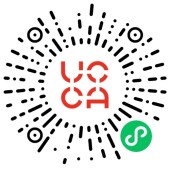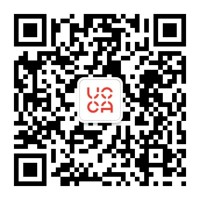UCCA Beijing Open Today, 10:00-19:00 (Final entry: 18:30)
UCCA Dune Open Today, 9:30-18:00 (Final entry: 17:30)
UCCA Clay Open Today, 9:00-18:00 (Final entry: 17:30)
UCCA Beijing“Koki Tanaka: Provisional Community” Exhibition Series
2025.9.27
“Koki Tanaka: Provisional Community” Exhibition Series
Opening Conversation: Provisional Community
2025.9.27
13:30-15:00
On September 27, 2025, the opening day of the exhibition “Koki Tanaka: Provisional Community,” UCCA will host a conversation by the artist Koki Tanaka to reflect on his recent artistic practice, creative reflections, and working methods. This will be followed by a conversation with writer, editor, and translator Andrew Maerkle, and the exhibition’s curator, Neil Zhang. Together, they will expand upon the themes of the exhibition and highlight how cross-linguistic and cross-cultural practices are translated in artistic creation while exploring how Tanaka engages with contemporary social contexts through collaboration and the formation of provisional communities.
Tanaka’s early work centered on readymades, experimentally investigating the latent potential within everyday objects. Following the March 11, 2011, earthquake in Japan, his practice shifted toward an emphasis on human relationships, through organizing, directing, and filming a series of projects that he terms as “collective actions.” This opening conversation will also address this artistic transition, as well as key works featured in the exhibition, considering how the artist navigates the tensions and intersections between individual experience and broader art historical narratives.
Schedule
13:00-13:30Audience Check-in
13:30-14:15Artist Talk
14:15-15:00Conversation
About the Speakers
Koki Tanaka (Artist)
Koki Tanaka (b. 1975, Tochigi, Japan; lives and works in Kyoto) graduated from Tokyo Zokei University (BFA) in 2000 and Tokyo University of the Arts (MFA) in 2005. His major solo exhibitions include “Vulnerable Histories (A Road Movie)” (Art Sonje Center, Seoul, 2020); “Precarious Tasks” (Mirrored Gardens, Guangzhou, 2019); “Vulnerable Histories (A Road Movie)” (Migros Museum of Contemporary Art, Zurich, 2018); “Provisional Studies (Working Title)” (Kunsthaus Graz, Graz, 2017); “Potters and Poets” (Asian Art Museum, San Francisco, 2016); “Possibilities for being together. Their praxis.” (Art Tower Mito Contemporary Art Gallery, Mito-shi, Ibaraki, 2015); “A Vulnerable Narrator” (Deutsche Bank Kunsthalle, Berlin, 2015); “Abstract Speaking – Sharing Uncertainty and Collective Acts” (Japan Pavilion, the 55th Venice Biennale, 2013). His work has also been shown extensively in group exhibitions and biennales including “Antibodies” (Palais de Tokyo, Paris, 2021); “Though it’s dark, still I sing” (Bienal de São Paulo, São Paulo, 2021); “Every Step in the Right Direction” (Singapore Biennale, Singapore, 2019); “Taming Y/Our Passion” (Aichi Triennale, Aichi, Japan, 2019); “Action!” (Kunsthaus Zurich, Zurich, 2017); “Viva Arte Viva” (the 57th Venice Biennale, 2017); “Trace of Existence” (UCCA Center for Contemporary Art, Beijing, 2016); “Mobile M+: Moving Images” (M+, Hong Kong, 2015). His work is held in the collections of institutions including M+, Hong Kong; Mori Art Museum, Tokyo; and Van Abbemuseum, Netherlands.
Andrew Maerkle (Writer, Editor, and Translator)
Andrew Maerkle is a Tokyo-based writer, editor, and translator. He is currently Editorial Director of Art Week Tokyo, and previously Deputy Editor of bilingual online publication ART iT from 2010 to 2024. From 2006 to 2008 he was Deputy Editor of ArtAsiaPacific in New York, where he helped create the annual Almanac edition. Maerkle is a contributor to international journals including Aperture, Art & Australia, Artforum, and Frieze. In 2025, his book of translations Kishio Suga. Writings. Vol. 2: 1980–1989 was published by Skira Arte. He also taught at the Graduate School of Global Arts, Tokyo University of the Arts, from 2018 to 2023.
About the Moderator
Neil Zhang (UCCA Curator)
Neil Zhang joined UCCA in 2020, where he is currently a Curator. Selected exhibitions he has curated include: “Silent Thunder” (2021); “Huang Rui: Ways of Abstraction” (2021); “Zhang Ruyi: Speaking Softly” (2022); “Alice Wang: The Touching Touched” (2023); “Hiroshi Sugimoto: Time Machine” (2024); “Liang Hao: Pacing the Void” (2024). He also co-curated the inaugural “Ad-Diriyah Biennale: Feeling the Stones” (2021) in Saudi Arabia.
Zhang studied at the Rhode Island School of Design, Brown University, and Columbia University. His research interests span the analysis of Buddhism under a postmodern framework, pre-modern East Asian visual culture, and contemporary art. He has also translated academic works, including Columbia University professor Bernard Faure’s The Rhetoric of Immediacy: A Cultural Critique of Chan/Zen Buddhism.

